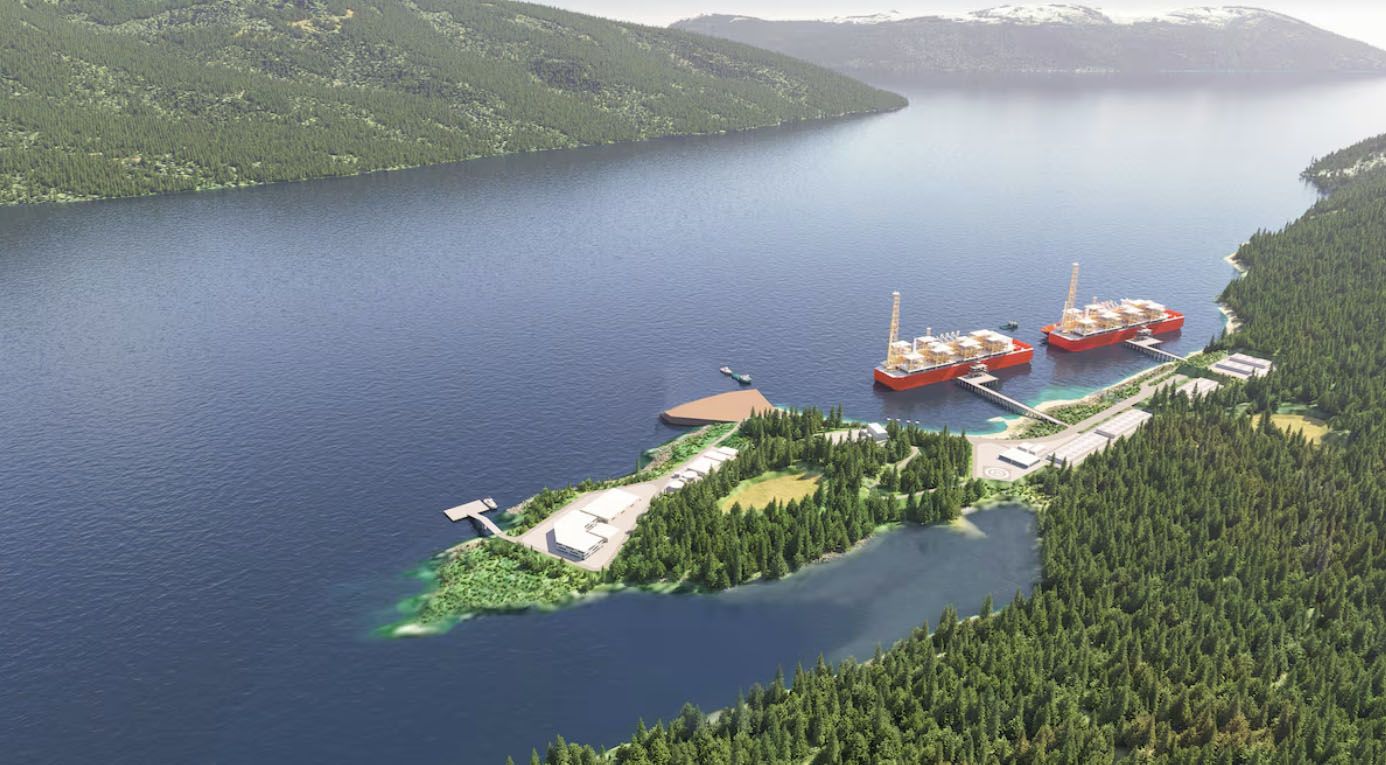The Kispiox Band council in British Columbia is seeking a judicial review to overturn a provincial energy regulator’s decision to allow the construction of a natural gas pipeline on the nearby Nisga’a Nation’s territory.
The elected band council, representing the Gitxsan Nation community of Kispiox, is going to court to challenge the BC Energy Regulator’s permit to build a section of the Prince Rupert Gas Transmission (PRGT) pipeline.
The regulator granted the permit in April although it was not publicly announced until July.
Construction of the pipeline project’s section 5B on the territory of the Nisga’a began in late August, but portions of PRGT would be within 15 kilometres of Kispiox. Band councillors said the pipeline poses environmental risks that would affect their community.
The Nisga’a and Houston-based Western LNG co-own the pipeline, which would transport natural gas from northeast B.C. to a West Coast facilty owned by Ksi Lisims LNG. The Ksi Lisims project would then process it for export as liquefied natural gas.
Ksi Lisims LNG, which hopes to begin exporting natural gas in liquid form to Asia in 2029, is co-owned by the Nisga’a, Western and a group of gas producers named Rockies LNG.
“We need to have an up-to-date assessment of cumulative effects of the whole PRGT project to understand the impacts from construction and operation of PRGT and how these impacts will be mitigated,” said Kolin Sutherland-Wilson, Kispiox’s elected chief councillor.
Mr. Sutherland-Wilson made the comment in an affidavit filed in B.C. Supreme Court by Ecojustice, the country’s largest environmental law charity.
Ecojustice is representing three applicants: Kispiox Band, Skeena Watershed Conservation Coalition and Kispiox Valley Community Centre Association.
The respondents are the BC Energy Regulator (BCER) and PRGT.
“The BCER interpreted the cumulative effects assessment conditions in the section 5 permit as only requiring a cumulative effects assessment of section 5B and mitigation measures for section 5B, rather than an assessment of cumulative effects and mitigation measures for the whole project,” the applicants said in their court filing.
The BCER and PRGT are slated to file their responses in court later this month.
In an e-mailed statement, the regulator said that it had granted approval for just section 5B of the project.
“Section 5B is completely within Nisga’a land set out under their treaty. As with all other permit conditions, the cumulative effects condition applies to the permit for which it is included and is linked to,” the regulator said. “Construction cannot commence in any other permitted sections of the pipeline route until the permit conditions are met for those sections.”
The Nisga’a and Western completed the acquisition of PRGT from Calgary-based TC Energy Corp. in June.
PRGT initially received its environmental assessment certificate in 2014, and won approval for a five-year extension in 2019, giving the project until Nov. 25, 2024, to “substantially start” pipeline construction.
Ecojustice and climate activists say PRGT’s strategy to start building on Nisga’a territory is a ploy to prevent the pipeline venture’s environmental assessment certificate from expiring in November.
If PRGT doesn’t substantially start construction by Nov. 25, “its decade-old environmental assessment certificate will expire and a new environmental assessment will be required to build the PRGT project,” according to the court application for the judicial review filed by Ecojustice.
Others voicing their opposition to PRGT include those from Indigenous groups in northwest B.C. such as the Gitanyow Hereditary Chiefs and Lax Kw’alaams Band. They also oppose the project because of potential impacts on their traditional territories.
“Gitanyow is not a party to the Ecojustice challenge, but has experienced similar problems with the BC Energy Regulator and the splitting of pipeline permit 5 to allow Nisga’a lands construction to start,” said Tara Marsden, sustainability director for the Gitanyow Hereditary Chiefs.
Gitanyow leaders and supporters have set up a blockade on an access road as part of their protest against PRGT.
The Nisga’a and Western “expect opposition and protest as a part of building any big project,” Western spokeswoman Rebecca Scott said in an e-mailed statement.
PRGT is striving to become the second major pipeline carrying natural gas from northeast B.C. to the West Coast for the purpose of exports. A group of Wet’suwet’en Nation hereditary chiefs has led a campaign opposing Coastal GasLink, the first export pipeline for natural gas across northern B.C.
The contentious Coastal GasLink pipeline, operated by TC Energy, will be supplying the Shell PLC-led LNG Canada joint venture in Kitimat, B.C., where exports to Asia are slated to begin by mid-2025. This past weekend, the Kitimat export terminal began receiving natural gas as part of a months-long commissioning process.
Read the original article by Brent Jang at the Globe And Mail.
